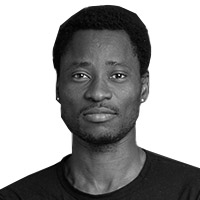In February, the U.S. State Department announced that longtime diplomat Randy Berry would be appointed as the first Special Envoy for the Human Rights of LGBT Persons to help eliminate violence and discrimination against LGBT people worldwide. This appointment has been widely applauded in the United States, but many of us outside the U.S. are concerned that it may be more symbolic than substantive—and that, in fact, the symbol may be a negative one.
To be sure, the Obama administration has been the most pro-LGBT in American history. Most recently, in his 2015 State of the Union speech, Obama became the first president to say the word ‘transgender’ at a high-profile event. He signed an executive order last summer barring government contractors from discriminating against LGBT employees. LGBT health care disparities were addressed under his Affordable Care Act.
So it is encouraging that the Obama administration now wants to take a leadership role in ending the abuse and torture of LGBT people globally. There is much work to be done: The laws in more than 78 countries in the world criminalize same-sex relations and more than 10 of those include the death penalty. And the situation is only getting worse in many countries, from my home country of Nigeria to Russia, Malaysia, Malawi, and Jamaica.
Is a special envoy the answer? I do not believe so.
Special envoys are similar to ambassadors and can conduct negotiations that other diplomats may not have the time, expertise, or status to do, and they are not held to slow bureaucratic channels. They are usually appointed to address high-stakes conflicts that require concentrated attention, but occasionally they are appointed to signal that an issue is important to the president.
But there are four reasons why a special envoy could be counterproductive.
First, so much work is already taking place, especially since former Secretary of State Hillary Clinton directed the State Department to advocate for the protection of the human rights of LGBT people in 2009. LGBT equality is being integrated into the State Department’s work, via the Global Equality Fund, several programs within the Department of Democracy, Human Rights, and Labor, and elsewhere. So why is this role needed?
Second, why the focus on LGBT equality specifically? We do not see special envoys on issues like gender violence, indigenous people’s rights, or poverty—usually envoys focus on issues jeopardizing peace—so why do LGBT rights require one? There is a risk that the envoy makes LGBT rights seem like “exceptional” rights that need exceptional attention, which could be counterproductive.
Third, one concern often raised about the envoy position is that it’s a way of “responding symbolically to congressional or public pressure rather than representing the administration’s serious commitment to address a challenge.” This is a concern I share. Although it is too early to tell, the envoy position runs the risk of being purely symbolic.
Fourth, the symbolism may actually be the wrong symbolism. The fact is that Berry is a white man—as will be his U.K. equivalent, if opposition leader Ed Miliband wins the May 7 election and appoints Lord Michael Cashman as his LGBT envoy, as promised last fall.
The envoy could run the risk of looking like (and being) a white person trying to save brown and black LGBT people from their brown and black oppressors. LGBT activists in Africa have long had to debunk the idea that homosexuality is something white people in Western countries do that is then imported into African countries. Thus the whiteness of the Western special envoy could reinforce this and create more challenges for black LGBT activists.
What are the alternatives?
First, bold and concrete actions, like banning a president who abuses human rights from entering the U.S., and not being friendly with them either. (I have not forgotten the first U.S.-African summit where President Barack Obama was seen taking pictures with Yayah Jammeh of Gambia or Goodluck Jonathan of Nigeria, two African leaders with terrible human rights records.) We should create visa bans for individuals or organizations involved in the spread of homophobia or who have taken a lead in the enactment of laws that will criminalize LGBT people. We also need to truly take human rights into account in trade agreements.
I would also like to see the U.S. create more mentorship, collaboration, and support for LGBT people risking their lives to change their countries, to have an approach that is driven by the countries with whom it is working. Examples of people in need of support are Maurice Tomlinson of Jamaica, who works to support homeless LGBT people, Nisha Ayub, who works to improve the lives of transgender individuals in Malaysia, and Jabu Pereira of South Africa who focuses on the intersectionality of race and sexuality. (I participated in The Daily Beast’s Quorum: Global LGBT Voices program with the three of them.)
Global South leaders hold the key to solving increasing homophobia in their own countries, and their work could be strengthened by financial support from the U.S. From the announcement about the special envoy, it sounds like support for activists and community groups will be a possibility and I urge that it be a priority.
To be sure, I am not completely against the special envoy idea, and perhaps I will be pleasantly surprised by the outcomes. But I also believe that these would be more proactive ways for influential and powerful countries like the U.S. to challenge and fight homophobia globally, without adding to the burden of the activists on the ground.
If the U.S. is sincere about tackling homophobia, it needs to stop friendliness with and support for governments that are criminalizing their people and it needs to listen to those who are fighting homophobia—often by risking their own safety and well-being—and support them.





